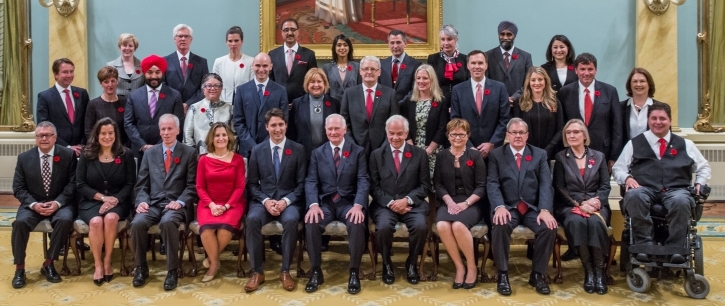A New Era in Canadian Science
/
Today I’m going to move away from the usual Skeleton Keys themes of forensics, forensic anthropology, and writing to cover a topic that’s closer to my day job—scientific research in Canada. Several weeks ago, we had a general federal election. The results of that election were somewhat unexpected in that we got a Liberal majority government (where the successful party wins more seats than the other two parties combined), ousting the decade long Conservative government. Going into the election, most people were calling for a minority government (where the successful party wins the most seats, but not more than the other two parties combined) and predicted it was going to be a close race between the Conservatives and the Liberals. Well, in the end, it wasn’t close at all. Positive politics took the day (are you watching, American politicians?), beating out a campaign of fear and divisiveness. It was a pretty amazing moment.
To most Canadian scientists, this change in government was long overdue. The Conservative government was known as controlling, tight-lipped, and focused on staying on their message at all cost. And as far as they were concerned, that focus also held for government-funded scientists. Scientists were muzzled and not allowed to discuss their research unless they had government approval and a Conservative representative was present at the time of each media interview to oversee the message. If your research didn’t agree with their message, then you absolutely had nothing to say. Many times, good news or pure interest stories (like improvements in lobster and fish farming or the locations of shark births) with absolutely no bearing on policy were shut down by the powers that be for absolutely no discernable reason. Canadian science was presented out of country, often made the news out of country, but was not allowed to be covered in country. It was stifling insanity of the worst kind.
This is not how science works. Pure science is objective and reports the results no matter what they are. Scientists are human, and sometimes it’s hard not to form a hypothesis and try to get the results to slot into that hypothesis, but objectivity and openness is the goal. For many of us within the scientific community, this kind of suffocating oversight was completely unacceptable.
Another issue during the tenure of the last government was that research funding has turned into an old boys’ club, giving more money for long term projects to those who already were established and had funding, and making it very difficult for mid-range scientists or those just starting out to stay afloat by only offering them small, single year grants. When researchers spend more time applying for funding than doing actual research, the system is most definitely broken.
We’re thrilled to see science represented multiple times in the new cabinet, including a new position, the Minister of Science. Our first Minister of Science, Dr. Kirsty Duncan, holds a Ph.D. in geology and is well-known for her work on the 1918 Spanish flu epidemic. However, it was her involvement in the UN Intergovernmental Panel on Climate Change that earned her a Nobel Peace Prize in 2007. Naveep Bains is the new Minister of Innovation, Science and Economic Development, and Catherine McKenna is our new Minister of Environment and Climate Change. That last is a huge step forward as we move from a government which mostly ignored climate change to a government that considers it important enough to create an office to oversee Canada’s contribution to controlling it.
The new government has already spoken with scientists and the media and has officially lifted the previous government’s insistence on secrecy and restrictions on dealing with the media. Just last week, the Honourable Mr. Bains said, “Our government values science and will treat scientists with respect. This is why government scientists and experts will be able to speak freely about their work to the media and the public.” To quote Wilfred Laurier and Justin Trudeau, ‘sunny ways’, indeed. The creation of the Minister of Science post and the liberation of scientists made such an impact that Nature, one of the highest ranked scientific journals worldwide, carried a breaking news story on it on the government’s first day in office.
So look out. Canadian scientists are back, and we’ve got something to say!
Photo credit: The Government of Canada



 87.5%
87.5%